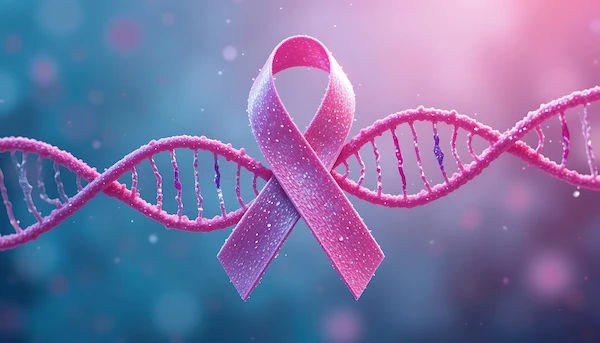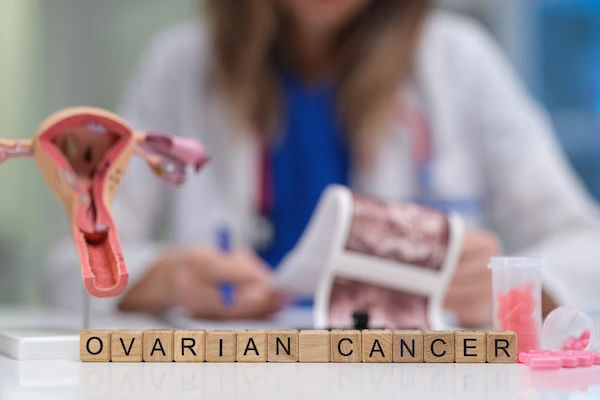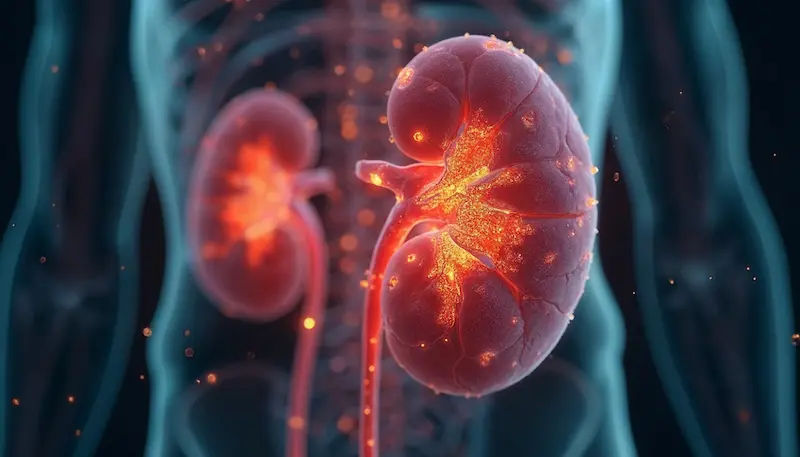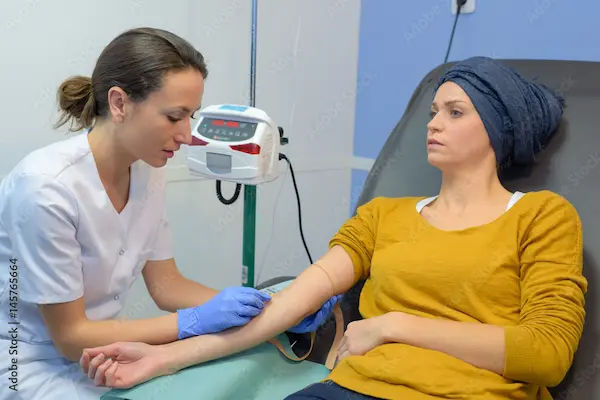Prolactinoma: Symptoms and Treatment Options
Learn about prolactinoma, a common type of pituitary tumor. Understand its symptoms in men and women, how it's diagnosed, and the full range of available treatment options.


If you or someone you know has been diagnosed with a prolactinoma, you might have questions about what it is, how it affects the body, and what treatment options are available. Don’t worry—this guide will help you understand this condition in simple terms and provide useful tips for managing it.
What is Prolactinoma?
A prolactinoma is a noncancerous (benign) tumor of the pituitary gland, a small gland at the base of the brain. This tumor causes the pituitary gland to produce too much prolactin, a hormone that regulates milk production in women. While it is more common in women, men can also develop prolactinomas.
How Does Prolactinoma Affect Health?
Excess prolactin can lead to various health issues, including:
- In women: Irregular or absent menstrual periods, milky discharge from the breasts (not related to breastfeeding), infertility, and decreased bone density.
- In men: Low testosterone levels, reduced sex drive, erectile dysfunction, enlarged breasts (gynecomastia), and infertility.
In both men and women: Headaches, vision problems (if the tumor presses on the optic nerves), and fatigue.
Symptoms of Prolactinoma
The symptoms vary depending on gender and tumor size. Here’s what to watch out for:
Common Symptoms in Women:
- Irregular or missed periods
- Milky discharge from breasts (galactorrhea)
- Difficulty getting pregnant
- Vaginal dryness
- Decreased bone density (osteoporosis)
Common Symptoms in Men:
- Low sex drive
- Erectile dysfunction
- Reduced facial/body hair growth
- Breast enlargement
- Infertility
- General Symptoms (Both Genders):
- Headaches
- Vision problems (blurred or double vision)
- Fatigue
- Mood changes
If you notice any of these symptoms, it’s best to consult a doctor for proper evaluation.
What Causes Prolactinoma?
The exact cause of prolactinoma is unknown, but certain factors may contribute:
- Hormonal imbalances – High prolactin levels can be triggered by stress, thyroid issues, or medications (like antidepressants).
- Genetics – Rarely, family history may play a role.
- Pregnancy & breastfeeding – These can increase prolactin temporarily but usually don’t cause tumors.
Consult a Gynecologist For The Best Advice
Diagnosis of Prolactinoma
If your doctor suspects prolactinoma, they may recommend:
Blood tests – To check prolactin levels.
- MRI scan – To detect the size and location of the tumor.
- Vision tests – If the tumor is pressing on the optic nerves.
- Early diagnosis helps in better management and prevents complications.
Treatment Options for Prolactinoma
The good news is that most prolactinomas are treatable! The treatment depends on the tumor size and symptoms.
1. Medications (First-Line Treatment)
Dopamine agonists (e.g., Cabergoline, Bromocriptine) are the most common medications. They shrink the tumor and lower prolactin levels.
- Benefits: Restores fertility, improves symptoms, and prevents complications.
- Side effects: Nausea, dizziness, or headaches (usually temporary).
2. Surgery (Rarely Needed)
- Recommended if medications don’t work or if the tumor is very large and pressing on nerves.
- Success rate: High for small tumors but may require followup medications.
3. Radiation Therapy (Very Rare)
Used only if medications and surgery fail.
Lifestyle & Self-Care Tips
While medications are the main treatment, these lifestyle changes can help:
- Eat a balanced diet – Include calcium and vitamin D for bone health.
- Exercise regularly – Helps maintain bone strength and overall wellbeing.
- Manage stress – Stress can affect hormone levels; try yoga or meditation.
- Avoid certain medications – Some drugs (like antipsychotics) can increase prolactin. Always check with your doctor.
When to See a Doctor?
If you experience:
- Unexplained menstrual irregularities
- Milky breast discharge (not breastfeeding)
- Persistent headaches or vision changes
- Sexual dysfunction or infertility
- Early treatment can prevent complications like osteoporosis and vision loss.
Need Help? Consult a Specialist Today!
If you suspect prolactinoma or need expert advice, Apollo 24|7 offers consultations with experienced endocrinologists. You can also book blood tests or MRI scans for diagnosis.
Call Apollo 24|7 or visit the app to schedule an appointment today!
Final Thoughts
Prolactinoma is a manageable condition with the right treatment. If you notice any symptoms, don’t ignore them—early diagnosis makes a big difference. Stay informed, follow your doctor’s advice, and take care of your health!
Stay healthy, stay happy!
Consult a Gynecologist
Consult a Gynecologist For The Best Advice

Dr Bhawna Garg
Gynaecological Oncologist
26 Years • MBBS, MS, (PGI MS ROHTAK) FELLOWSHIP GYNECOLOGY ONCOLOGY, (CANCER INSTITUTE CHENNAI)
Delhi
Apollo Hospitals Indraprastha, Delhi

Dr. Rupam Manna
Radiation Specialist Oncologist
7 Years • MBBS MD(RADIO THERAPY), CCEBDM
Barasat
Diab-Eat-Ease, Barasat

Dr. Sreeparna Roy
Obstetrician and Gynaecologist
8 Years • MBBS , MS (OBSTETRICS & GYNAECOLOGY), Fellowship in Infertility, Endoscopy & Ultrasonography), Fellowship in Laparoscopy & Hysteroscopy,DRM
Kolkata
Dr Utsa Basu Clinic, Kolkata

Dr. Revathi S Rajan
Obstetrician and Gynaecologist
24 Years • MBBS, DGO, DNB.FFMM
Bengaluru
Apollo Clinic, JP nagar, Bengaluru

Dr. Renuka Chandran
Obstetrician and Gynaecologist
30 Years • MBBS, MD, DGO, Masters in Advanced Ultrasound in Obs & Gynea
Bangalore
Apollo Clinic Bellandur, Bangalore
Consult a Gynecologist

Dr Bhawna Garg
Gynaecological Oncologist
26 Years • MBBS, MS, (PGI MS ROHTAK) FELLOWSHIP GYNECOLOGY ONCOLOGY, (CANCER INSTITUTE CHENNAI)
Delhi
Apollo Hospitals Indraprastha, Delhi

Dr. Rupam Manna
Radiation Specialist Oncologist
7 Years • MBBS MD(RADIO THERAPY), CCEBDM
Barasat
Diab-Eat-Ease, Barasat

Dr. Sreeparna Roy
Obstetrician and Gynaecologist
8 Years • MBBS , MS (OBSTETRICS & GYNAECOLOGY), Fellowship in Infertility, Endoscopy & Ultrasonography), Fellowship in Laparoscopy & Hysteroscopy,DRM
Kolkata
Dr Utsa Basu Clinic, Kolkata

Dr. Revathi S Rajan
Obstetrician and Gynaecologist
24 Years • MBBS, DGO, DNB.FFMM
Bengaluru
Apollo Clinic, JP nagar, Bengaluru

Dr. Renuka Chandran
Obstetrician and Gynaecologist
30 Years • MBBS, MD, DGO, Masters in Advanced Ultrasound in Obs & Gynea
Bangalore
Apollo Clinic Bellandur, Bangalore




